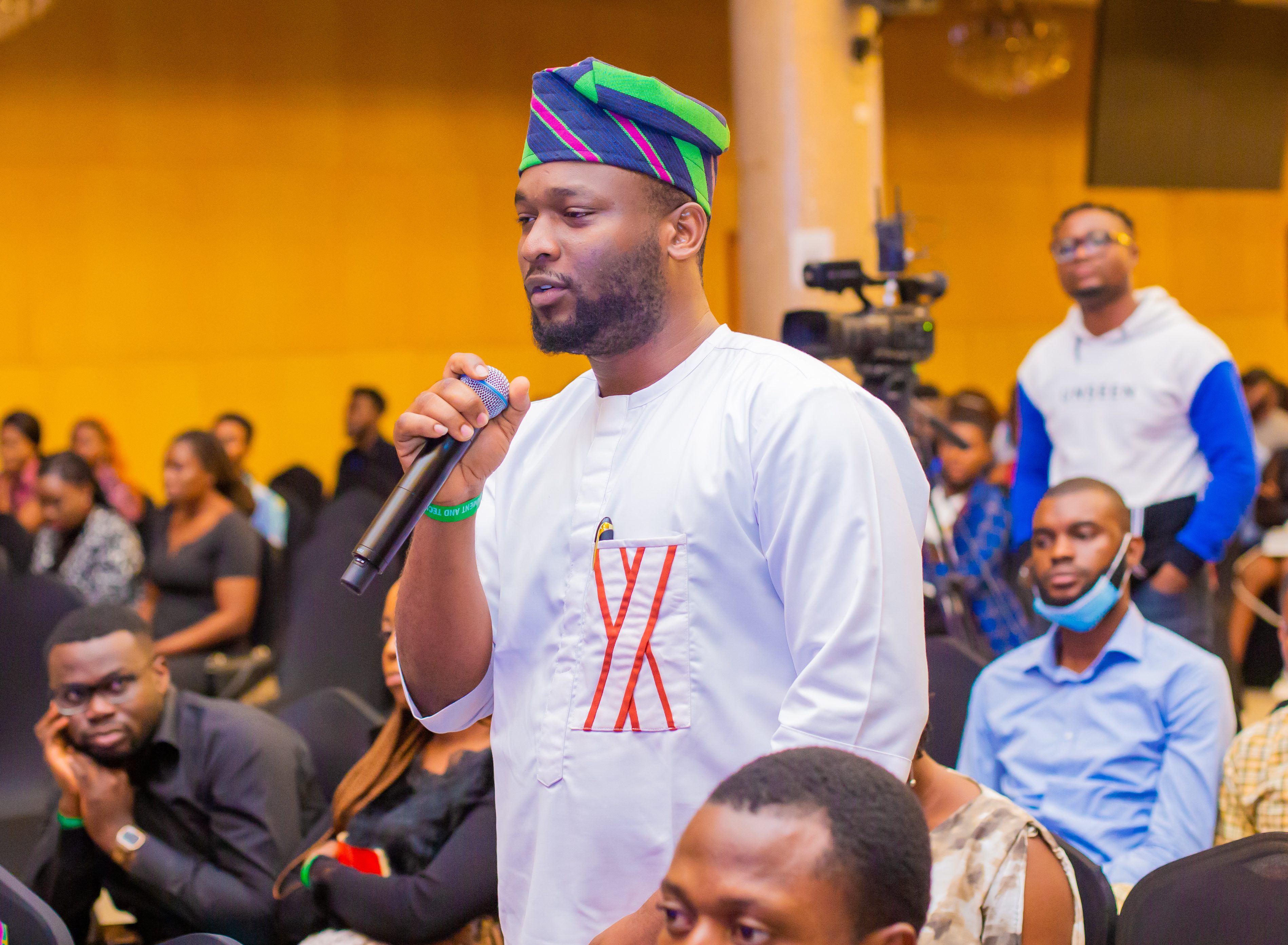At the maiden edition of the Government and Tech (GAT) Summit organised by Technext, held Thursday in Lagos, stakeholders of the Nigerian tech industry and regulators debated how the ecosystem can move forward amid the challenges that stifle the growth of the industry.
Delivering the opening address, the CEO of Technext, David Afolayan, called for regulators to engage with members of the ecosystem and listen to their demands.
“There is no gain when there is tension between the country’s leaders and its citizens,” he said.
He called on the attention of the government to the young thriving tech ecosystem run by mostly young Nigerians.
“There is now a young generation of innovators that are interested in forward-thinking ideas,” he said at the GAT Summit 2022.


We cannot move forward by remaining where we’ve always been. There is a need for us to communicate.
David Afolayan, CEO, Technext
Olatubosun Alake, the Special Adviser on Innovation and Technology, representing governor Babajide Sanwo-Olu of Lagos, made the case that Lagos is at the forefront of the movement to encourage innovations in the country. But he cautioned that it would include some regulations.
Read more: Lagos governor, Babajide Sanwo-Olu presents Lagos as an emerging tech
“One of the key factors for driving sustainable economic growth is regulation,” he said, adding that “a balance must be struck” between citizens and regulators for the advancements to be made.


On a panel session on the topic “Regulating for the People – the Role of Governance in Innovation,” moderated by Rufai Oseni of Arise TV and the Voice of the People, panellists including Mohammed Ibrahim Jega, Co-founder, Domineum Blockchain Solutions Ltd, Bukola Olutayo, CEO, Stellas Bank, Jeffrey Williams-Edem, Fintech and growth expert, Bola Ajomale, Former MD, NASD Plc and William Phelps, Investment Manager, Adaverse, engaged in stimulation dialogues on how regulations can be made in a way that propels stakeholders participation.
“Regulation should protect the citizens and also foster technology because technology will help the economy develop too,” Bukola Olutayo argued during the heated session.


The Director General of the National Information Technology Development Agency (NITDA), Inuwa Abdullahi who gave the second keynote lecture titled “Regulating for the People – The Role of Governance in Innovation,” argued for policies that will both protect the country and the industry, especially from foreign tech giants who pounce on developing industries like Nigeria’s.
“We have realised that the big tech sees us as free raw materials for extraction, production, commodification and sales,” he said. But he quickly added that “Our most dangerous illusion in the wonderland [tech ecosystem] is that these platforms, supposed to be tools to increase freedom and democracy, are actually eroding democracy and diminishing freedom.”
He made references to the influence that social media companies and their founders now have in countries like America, arguing that without regulations democracy could be a free fall.
He said he wants to, among other things, “work with the FRSC to get incentives for those in the tech space, work with a PPP to come up with a bi-border procurement process for tech companies so that government can patronise them, come up ways to protect the IP’s.”


In another panel tagged “Regulating for the future – Providing Solutions for Smart Governance,” panellists including Mejero Emmanuella, the co-founder of Pennee, Adewale Adeyipo, CEO of CWG Plc, a representative from Softcom Limited, Oluwemimo J. Osanipin, COO, JET Motors, Professor Ajayi Ayodele Ebenezer, former Adviser to the Executive Governor of Ekiti and Similoluwa Opeyemi, Legal Counsel, Youverify argued that more tech-savvy operators are needed in the government for regulations that meet the needs of the ecosystem to be implemented.
“Fundamentally, a look inward is necessary with a view of finding a working principle to provide better services for people,” Mejero Emmanuella said during the session, adding that the processes to get businesses licensed in the country can be at times gratuitous.
Panellists also argued that the regulations going forward be tailormade for the Nigerian experience.
Most of the regulations we have looks like a copy and paste of other regulatory books. Often, they don’t take into the circumstances of how the Nigerian climate works. Regulations need to be adapted.
Similoluwa Opeyemi
But Oluwemimo J. Osanipin of JET Motors doesn’t see a way forward without collaboration between all the parties involved.
“Regulators and innovators have to meet midway to provide suitable governance,” he said. “If regulators want people to come to them, it will be difficult to regulate. For you to regulate properly, you need to regulate from a place of knowledge.”


The major takeaway from the event was that for the industry to begin to chart a way forward that is favourable, there must be proper communication between regulators and innovators.
See more images from the event below:























